Australia’s Prime Minister Anthony Albanese says Labor’s victory in the last federal election in May is a victory for multiculturalism.
At his National Press Club Address on May 18, Albanese postulated that the fact that he has a ‘non-Anglo-Celtic name’ is ‘a win for multicultural Australia’.
Then he added:
‘I think it’s good someone with a non-Anglo Celtic surname is the leader in the House of Representatives and that someone with a surname like Wong is the leader of the government in the Senate.’
The following is a statement of the Prime Minister on his official website: ‘Diversity is strength; tolerance is natural.’ This may be a nice message but the question is: Is this statement actually supported by the best historical evidence? Unfortunately not. To the contrary, history teaches us that too much ‘cultural diversity’ is actually a leading cause of civil wars and national fragmentation, because it naturally leads to the loss of national identity that causes entire nations to fragment into ethnic enclaves.
Of course, locking people into ethnic enclaves does not seem to advance democracy, because democratic participation requires that all citizens are able to communicate with others in the common language of their fellow citizens.
In his seminal book on how stable democracies actually work, entitled On Democracy (Yale University Press, 1998), emeritus professor of political science Robert Dahl of Yale University identified the underlying conditions that favor the stability of democratic institutions.
‘Where these conditions are weakly absent democracy is unlikely to exist, or if it does, its existence is likely to be precarious,’ he said.
According to Professor Dahl, among conditions leading to the instability of democracy are ‘cultural pluralism’ and lack of commonly shared beliefs. ‘Democratic political institutions are more likely to develop and endure in a country that is culturally fairly homogeneous and less likely in a country with sharply differentiated and conflicting subcultures,’ he says. Conversely, Professor Dahl adds, cultural diversity threatens to generate ‘intractable social conflicts’ whereby the maintenance of democratic institutions is not possible. Thus he concludes:
‘Cultural conflicts can erupt into the political arena, and typically they do: over religion, language, and dress codes in schools, for example; or discriminatory practices by one group against another; or whether the government should support religion or religious institutions, and if so, which ones and in what ways; or practices by one group that another finds deeply offensive and wishes to prohibit … Issues like these pose a special problem for democracy. Adherents of a particular culture often view their political demands as matters of principle, deep religious or quasi-religious conviction, cultural preservation, or group survival. As a consequence, they consider their demands too crucial to allow for compromise’.
What Professor Dahl authoritatively says is that some cultural values may be considered by some of the more powerful elements within the particular group as ‘non-negotiable’, whereas democracy obviously requires an environment of personal choice and tolerance.
That being so, John Gray, a retired professor of politics at Oxford University, argues that a truly democratic society ‘cannot be radically multicultural but depends for its successful renewal across the generations on an undergirding culture that is held in common’. This common culture, Professor Gray concludes, ‘needs not encompass a shared religion and it certainly need not to presuppose ethnic homogeneity, but it does demand widespread acceptance of certain norms and conventions of behavior and, in our times, it typically expressed a shared sense of nationality.’
Multiculturalism, an idea that started out in the sixties and early seventies, initially had the goal of including ethnic minorities in Western democracies. Nowadays, however, it is difficult to talk candidly about such an idea, since the idea has now become an aggressive ideology against the once predominant moral, legal, and religious traditions of the West.
According to British historian Paul Johnson:
‘Multiculturalism has been, and will be, exploited by a few social engineers to dismember the elements of existing societies, especially those of the West with their deep Christian underpinnings, and reconstruct them according to new blueprints – to provide legal accommodation, for example, to practices such as polygamy.’
As can be seen, at least in its more radical implications, multiculturalism has never been just a fair and impartial understanding of different cultures. Instead, this predominantly government-sponsored ideological construct operates as a subversive strategy for the entire deconstruction of Western Civilisation.
In his last work before he passed away, the late Harvard political scientist Samuel Huntington defined multiculturalism essentially in terms of an ‘anti-Western ideology opposed to Eurocentric concepts of democratic principles, culture, and identity’.
Indeed, as presently propagated multiculturalism constitutes, primarily, a radical ideology whose educational program is subordinated to a political program that is, above all, anti-Western and anti-Christian.
Accordingly, multiculturalism acts as a form of political correctness that defrocks Western societies of objective standards of morality, although the democratic values our Western societies share, according to Jeffrie G. Murphie, a distinguished US professor of law and philosophy:
‘Come to us trailing their historical past; and when we attempt to cut all links to that past we risk cutting the life lines on which those values essentially depend… Thus ‘All men are created equal and are endowed by their Creator with certain unalienable rights’ may be a sentence we must accept in an all or nothing fashion – not one where we can simply carve out what we like and junk the rest.’
Without a doubt, one of the most dramatic consequences of the ongoing multicultural project is the reduction of freedom of speech.
The multicultural project is part of that tyranny of wishful thinking that inevitably accompanies the decay of reason. As such, the pretence of ‘tolerance’ and ‘diversity’ now exists only for the multiculturalists themselves.
The great paradox of multiculturalism is precisely that its pretence of tolerance has polluted with racial suspicion and intellectual closed-mindedness the once tolerant environment of western democracies, Australia included. After all, radical multiculturalists effectively aspire to the replacement of Western culture with alternative codes of moral conduct that are far more intrusive than the former ones.
As noted by the late sociologist Gertrude Himmelfarb, these new codes of moral conduct ‘are based not on familiar, accepted principles but on new and recondite ones, as if designed for another culture or tribe’.
The inevitable consequence, writes US political commentator Tammy Bruce, is that:
‘Framing arguments about race as arguments about culture has the additional advantage for the Left of removing the individual from the scene entirely. Ironically, it also reinforces what is supposedly being resisted: the isolation of people because of their race. By defining society not as an entity made up of individual people but as a collection of cultures – such as white culture, black culture, [Asian] culture – the Left effectively isolates us, whether we like it or not, into special-interest groups. The culture has the identity, eclipsing the individual. We’re no longer individuals with unique minds and talents; we’re defined instead by the color of our skin, by the country in which we were born, by the religion we practice.’
Apart from a few privileged individuals, the remainder of our community gain very little from the amorphous atmosphere of multiculturalism, save bewilderment and the loss of a sense of national identity.
As noted by the late political philosopher, Roger Scruton, ‘If people come from immigrant backgrounds that preserve the memory of a religious law, they will often revert to a religious experience of membership, and define themselves in opposition to the territorial jurisdiction by which they are ostensibly governed.’
What is more, writes French philosopher Pascal Bruchner:
‘The ambiguity of multiculturalism proceeds from the fact that it imprisons men, women, and children in way of life and in traditions from which they often aspire to free themselves. The politics of identity in fact reaffirm difference at the very moment when we are trying to establish equality, and lead, in the name of antiracism, back to the old commitments connected with race or ethnicity.’
In The Spirit of the Laws the great French philosopher, Charles Louis De Secondat, or Baron de Montesquieu, defended the Judeo-Christian values of Western Civilisation and compared cultural relativists to ‘savage beasts … who perceive their liberty only when they tears this into pieces, and when they devour it’.
Accordingly, Australia is unquestionably at the great risk of succumbing to the arrogant fascination of ‘progressive’ pseudo-intellectuals and politicians who are cultural (moral) relativists but think they know exactly what they are doing, and they are absolutely ruthless in the doing of it.
At the National Press Club Address, the Prime Minister spoke passionately about ‘celebrating diversity’ and ‘the multicultural miracle of modern Australia’. Of course, in a certain way the Prime Minister is quite right as it is certainly a miracle that Australia can still survive a radical project that is always accompanied by moral confusion, then social disintegration, and then national fragmentation.
Augusto Zimmermann is professor and head of Law at the Sheridan Institute of Higher Education, and served as a Law Reform Commissioner in Western Australia. While lecturing (and coordinating) constitutional law and legal theory at Murdoch University, he was awarded the 2012 Vice Chancellor’s Award for Excellence in Research, as well as two consecutive Law School Dean’s Research Awards, in 2010 and 2011. He is also President of the Western Australian Legal Theory Association (WALTA) and Editor-in-Chief of The Western Australian Jurist law journal.
Got something to add? Join the discussion and comment below.
Get 10 issues for just $10
Subscribe to The Spectator Australia today for the next 10 magazine issues, plus full online access, for just $10.

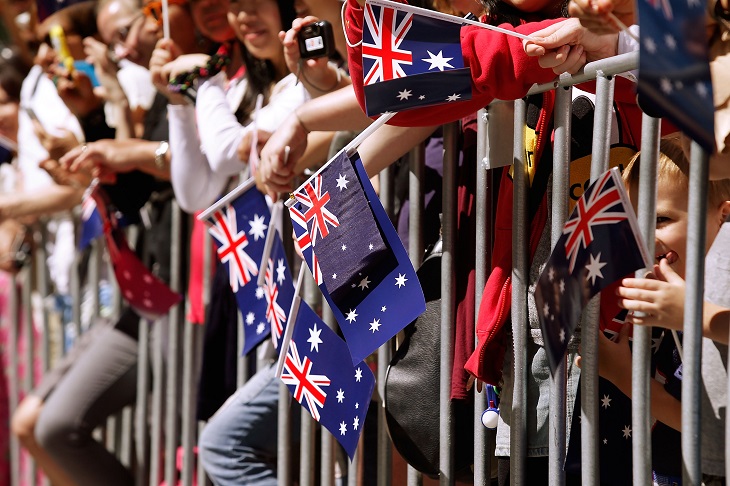

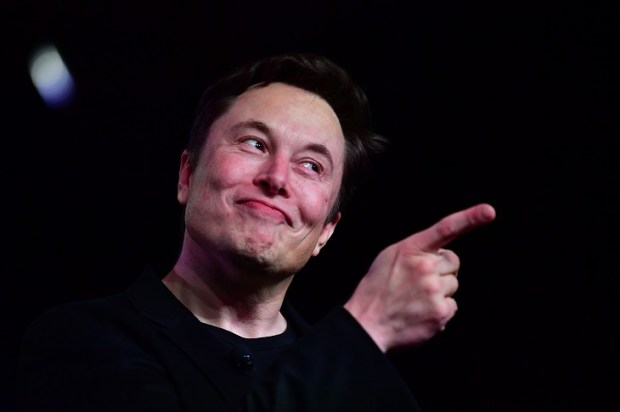
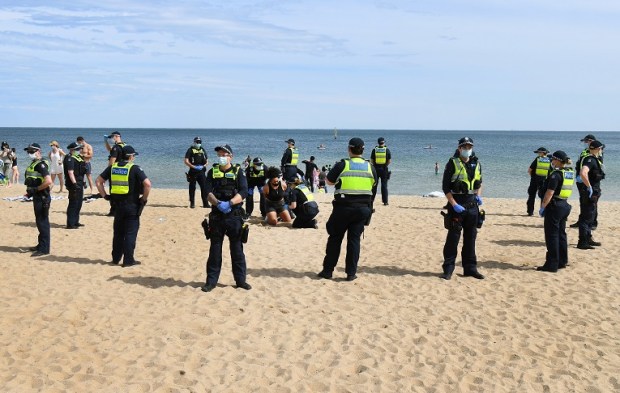
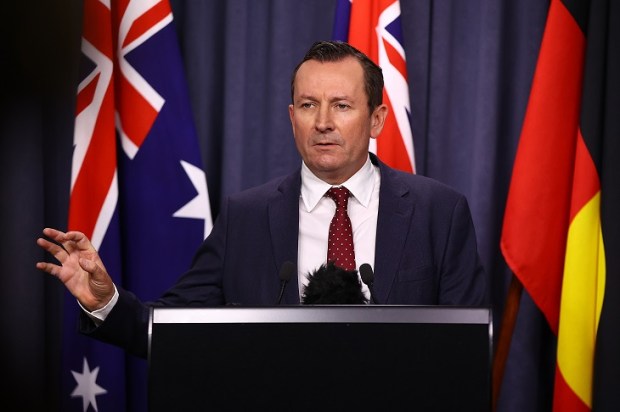
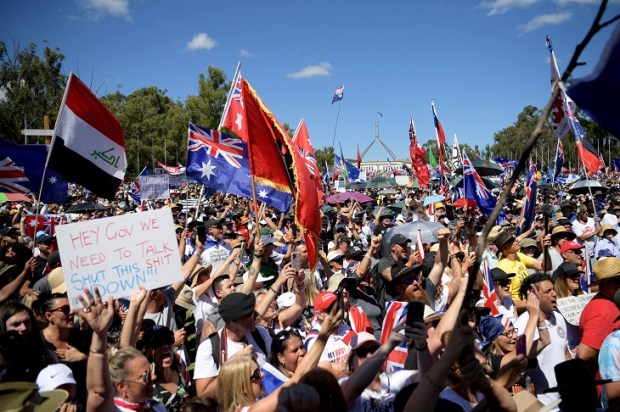
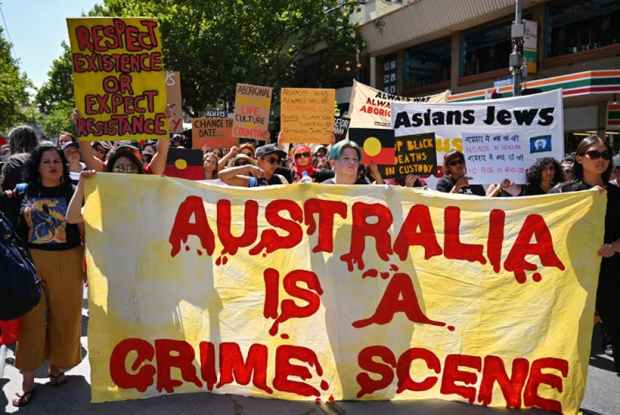


















Comments
Don't miss out
Join the conversation with other Spectator Australia readers. Subscribe to leave a comment.
SUBSCRIBEAlready a subscriber? Log in